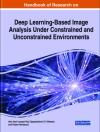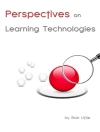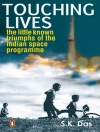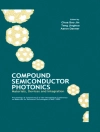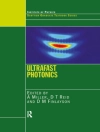This book presents contributions of intelligent management theories and models for a more effective management of sustainable business practices in competitive, profitable and socially responsible organizations. It communicates the latest developments and thinking on the sustainability and intelligent management subjects worldwide, increasing the knowledge and effectiveness of all those involved in these areas whether in the profit or non-profit sectors or in the public or private sectors.
Зміст
Chapter 1 – High Quality Employment Relationships: Sustainable Management Through a Psychological Contract Perspective.- Chapter 2 – Designing an Interactionist Approach for Sustainable HRM: might the borders and overlaps with Internal Communication lead to a common end?.- Chapter 3 – The Recruitment and Selection Processes Influence on the Access of Immigrants to the Labor Market.- Chapter 4 – Can Facebook Data Predict the Level of Sustainable Development in EU-27?.- Chapter 5 – The Influence of Social Participation for Sustainable against Regression: a critical review of Brazilian Environmental Public Policies in light of the Environmental Justice.- Chapter 6 – Analysis of Food Loss and Waste for the European Countries in the Context of Sustainable Development.- Chapter 7 – Sustainability, innovation, and diversification in the Spanish frozen food industry: a financial analysis.- Index.
Про автора
Carolina Machado received her Ph.D. degree in Management Sciences (Organizational and Policies Management area / Human Resources Management) from the University of Minho in 1999, Master degree in Management (Strategic Human Resource Management) from Technical University of Lisbon in 1994, and Degree in Business Administration from University of Minho in 1989. Teaching in the Human Resources Management subjects since 1989 at University of Minho, she is since 2004 Associated Professor, with experience and research interest areas in the field of Human Resource Management, International Human Resource Management, Human Resource Management in SMEs, Training and Development, Emotional Intelligence, Management Change, Knowledge Management and Management/HRM in the Digital Age. She is Head of the Human Resources Management Work Group at the School of Economics and Management at University of Minho, Coordinator of Advanced Training Courses at the Interdisciplinary Centre of Social Sciences, Member of the Interdisciplinary Centre of Social Sciences (CICS.NOVA.UMinho), University of Minho, as well as Chief Editor of the International Journal of Applied Management Sciences and Engineering (IJAMSE), Guest Editor of journals, books Editor, and book Series Editor, as well as Reviewer in different international prestigious journals. In addition, she has also published both as Editor/Co-Editor and as Author/Co-Author several books, book chapters, and articles in journals and conferences.
J. Paulo Davim received his Ph.D. degree in Mechanical Engineering in 1997, M.Sc. degree in Mechanical Engineering (materials and manufacturing processes) in 1991, Mechanical Engineering degree (5 years) in 1986, from the University of Porto (FEUP), the Aggregate title (Full Habilitation) from the University of Coimbra in 2005, and the D.Sc. (Higher Doctorate) from London Metropolitan University in 2013. He is Senior Chartered Engineer by the Portuguese Institution of Engineers with an MBA and Specialist titles in Engineering and Industrial Management as well as in Metrology. He is also Eur Ing by FEANI-Brussels and Fellow (FIET) of IET-London. Currently, he is Professor at the Department of Mechanical Engineering of the University of Aveiro, Portugal. He is also distinguished as Honorary Professor in several universities/colleges. He has more than 30 years of teaching and research experience in Manufacturing, Materials, Mechanical and Industrial Engineering, with special emphasis in Machining & Tribology. He has also interest in Management, Engineering Education, and Higher Education for Sustainability. He has guided large numbers of postdoc, Ph.D., and master’s students as well as has coordinated and participated in several financed research projects. He has received several scientific awards and honours. He has worked as Evaluator of projects for ERC-European Research Council and other international research agencies as well as Examiner of Ph.D. thesis for many universities in different countries.


